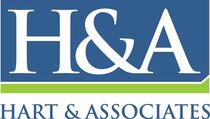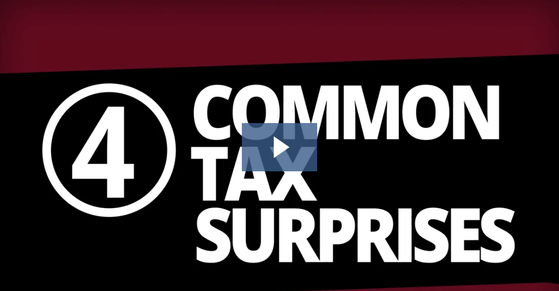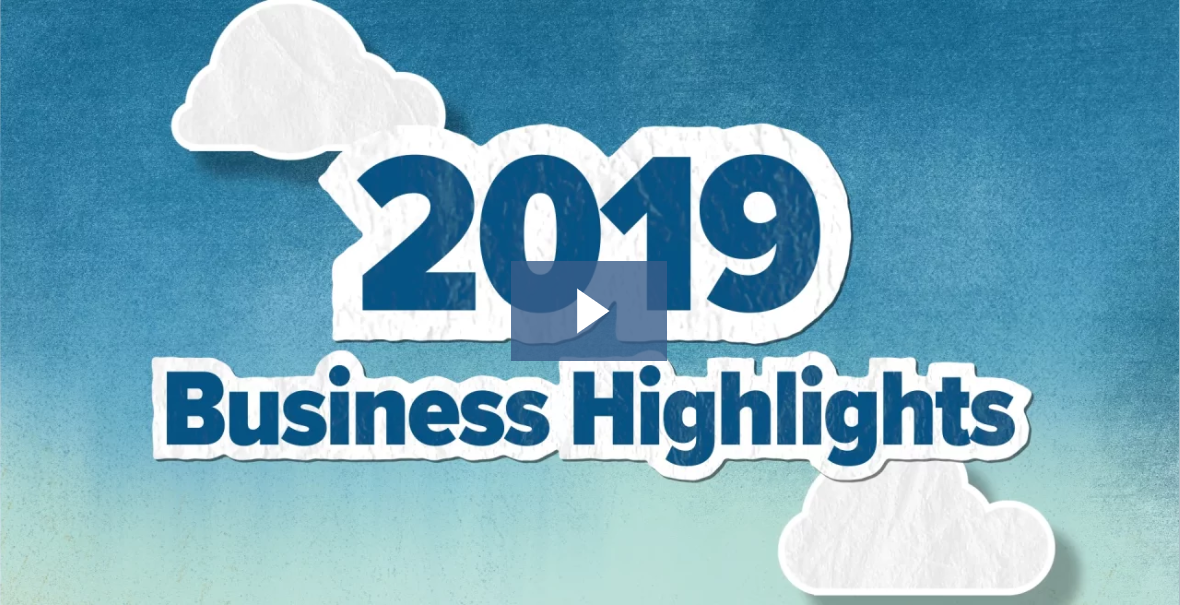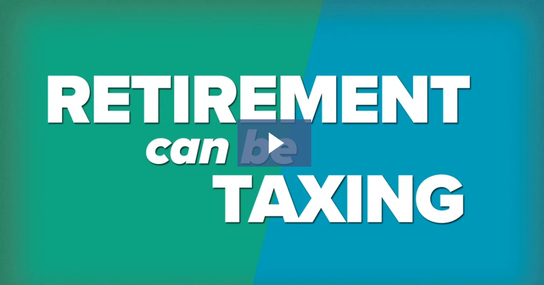Even though the benefit of a tax credit traditionally isn’t available until after the tax return for the year has been filed, for 2021 the new tax law included a provision to get the credit benefit into the hands of taxpayers as quickly as possible and charged the Secretary of the Treasury with establishing an advance payment plan.
Under this mandate, those qualifying for the credit would receive monthly payments starting in July equal to 1⁄12 of the amount the IRS estimated the taxpayer would be entitled to by using the information on the 2020 return. If the 2020 return had not been filed or processed yet by the IRS, the 2019 information was to be used. However, since the IRS only estimated the amount of the advance payments, some taxpayers may have received too much and others not enough. Thus, the payments received must be reconciled on the 2021 tax return with the amount that each taxpayer is actually entitled to. Those who received too much may be required to repay some portion of the advance credit while some may be entitled to an additional amount. To provide taxpayers with the information needed to reconcile the payments, the IRS has begun sending out Letter 6419, an end-of-year statement that outlines the payments received as well as the number of qualifying children used by the IRS to determine the advance payments. For those who filed jointly on their prior year return, each spouse will receive a Letter 6419 showing the advance amount received. Do not discard the letter(s) from the IRS as they will be required to properly file 2021 returns. Having received the advance credit payment, taxpayers will find their refunds will be substantially less than they may have expected, or they might even end up owing money on their tax return unless their AGI is low enough to qualify for the safe harbor repayment protection for lower-income taxpayers, in which case the excess advance repayment is eliminated or reduced. Example: If a taxpayer received advance child tax credit payments for two children based on the 2020 return, and the taxpayer doesn’t claim both children as dependents in 2021, the taxpayer would need to repay the excess on their return, unless they are protected by the safe harbor provision. It is also possible that one taxpayer could have received the advance child tax credit payments based on their 2020 return and not have to make a repayment under the safe harbor rule, while another taxpayer, who can legitimately claim the child, can get the credit on their 2021 tax return. This is most likely to happen when the parents are divorced. So, there’s the potential for the child tax credit to be received by both parents. If you have questions about the Child Tax Care Credit or would like assistance with filing your tax return, please reach out. We'd be happy to help!
This is general information and should not be acted upon without first determining its application to your specific situation. Please contact us, your CPA or tax adviser for additional details.
Life changes and decisions related to money can lead to surprises at tax time. How do you avoid four common surprises? Check out this video for details.
And please don't hesitate to give us a call or schedule an appointment if you want to discuss your personal tax situation.
How have recent tax changes affected your business this year? Find out more in this tax highlights video.
And if you haven't scheduled your tax appointment yet, we encourage you to do so soon!
The information presented is of a general nature and should not be acted upon without further details and/or professional guidance. For assistance in identifying and utilizing all the tax deductions to which you are entitled, please contact us, your CPA or tax preparer.
Check out the 2019 Fall/Winter edition of our quarterly newsletter. Topics include:
And please don't hesitate to contact us or schedule a consultation if we can be of assistance!
Because so many fraudulent tax returns are filed right after e-filing opens up in January, the IRS requires 1099-MISCs for NEC to be filed by January 31 and will not release refunds for individual income tax returns that include the earned income tax credit until the NEC amounts can be verified.
Thus, the due date for filing 2019 1099-MISC forms for NEC is January 31, 2020. This is also the same due date for mailing the recipient his or her copy of the 1099-MISC. It is not uncommon for a business or rental property owner to have a repairperson go out early in the year, pay him or her less than $600, use his or her services again later in the year, and have the total paid for the year be $600 or more. As a result, the business or landlord may have overlooked getting the needed information from the individual to file the 1099s for the year. Therefore, if you own a business or are a landlord, it is good practice to always have individuals who are not incorporated complete and sign an IRS Form W-9 the first time you engage them and before you pay them. Having a properly completed and signed Form W-9 for all independent contractors and service providers will eliminate any oversights and protect you against IRS penalties and conflicts. If you have been negligent in the past about having the W-9s completed, then it would be a good idea going forward to establish a procedure for getting each non-corporate independent contractor and service provider to fill out a W-9 and return it to you. The government provides IRS Form W-9, Request for Taxpayer Identification Number and Certification, as a means for you to obtain the vendor’s data you’ll need to accurately file the 1099s. It also provides you with verification that you complied with the law in case the vendor gave you incorrect information. We highly recommend that you have potential vendors complete a Form W-9 prior to engaging in business with them. The W-9 is for your use only and is not submitted to the IRS. The penalty for failure to file a required information return due in 2020, such as the 1099-MISC, is $270 per information return. The penalty is reduced to $50 if a correct but late information return is filed no later than the 30th day after the required filing date of January 31, 2020, and it is reduced to $110 for returns filed after the 30th day but no later than August 1, 2020. If you are required to file 250 or more information returns, you must file them electronically. In order to avoid a penalty, copies of the 1099-MISCs you’ve issued for 2019 need to be sent to the IRS by January 31, 2020. The forms must be submitted on magnetic media or on optically scannable forms (OCR forms). Note: Form 1099-MISC is also used to report other types of payments, including rent and royalties. Payments to independent contractors are reported in box 7 of the 1099-MISC, and the dates mentioned in this article apply when box 7 has been used. When the 1099-MISC is used to report income other than that in box 7, the due date to the form’s recipient is January 31, 2020, while the copy to the government is due by February 28, 2020. If you have any questions, please call us or schedule a consultation. Not only do we offer 1099 preparation for submission to the IRS along with recipient copies and file copies for your records, but we assist with Form W-9 requests and management year round. (If you already obtained Forms W-9 from your contractors, feel free to use the 1099 worksheet to provide this office with the information needed to prepare your 1099s.)
This is general information and should not be acted upon without first determining its application to your specific situation. Please contact us, your CPA or tax adviser for additional details.
With the arrival of 2020, another tax season is upon us. To ensure you are prepared for your tax appointment, please review the video below. If you have any questions or need to schedule your tax appointment, please give us a call or schedule an appointment.
This is general information and should not be acted upon without first determining its application to your specific situation. Please contact us, your CPA or tax adviser for additional details.
January 10 - Report Tips to Employer
If you are an employee who works for tips and received more than $20 in tips during December, you are required to report them to your employer on IRS Form 4070 no later than January 10. January 15 - Individual Estimated Tax Payment Due It’s time to make your fourth quarter estimated tax installment payment for the 2019 tax year. January 31 - Individuals Who Must Make Estimated Tax Payments If you didn't pay your last installment of estimated tax by January 15, you may choose (but aren't required) to file your income tax return (Form 1040 or Form 1040-SR) for 2019 by January 31. Filing your return and paying any tax due by January 31 prevents any penalty for late payment of the last installment. If you can't file and pay your tax by January 31, file and pay your tax by April 15. If a conversation would help you to understand your tax situation better, please schedule an appointment or give us a call. We are here to help!
This is general information and should not be acted upon without first determining its application to your specific situation. Please contact us, your CPA or tax adviser for additional details.
January 15 - Farmers and Fishermen
Pay your estimated tax for 2019 using Form 1040-ES. You have until April 15 to file your 2019 income tax return (Form 1040 or Form 1040-SR). If you don't pay your estimated tax by January 15, you must file your 2019 return and pay any tax due by March 2, 2020, to avoid an estimated tax penalty. January 31 - 1099-MISCs Due to Service Providers & the IRS If you are a business or rental property owner and paid $600 or more to individuals (other than employees) as nonemployee compensation during 2019, you are required to provide Form 1099 to those workers by January 31. “Nonemployee compensation” can mean payments for services performed for your business or rental by an individual who is not your employee, commissions, professional fees and materials, prizes and awards for services provided, fish purchases for cash, and payments for an oil and gas working interest. In order to avoid a penalty, copies of the 1099s also need to be sent to the IRS by January 31, 2020. The 1099s must be submitted on optically scannable (OCR) forms. This firm prepares 1099s in OCR format for submission to the IRS with the 1096 submittal form. This service provides both recipient and file copies for your records. A business or individual who is required to file 250 or more information returns (i.e., 1099s among others) must file those forms electronically. Please call this office for preparation assistance. January 31 - Form 1098 and Other 1099s Due to Recipients Form 1098 (Mortgage Interest Statement) and Forms 1099, other than 1099-MISC when box 7 is used, are also due to recipients by January 31. The IRS’ copy is not due until February 28, 2020, or April 1, 2020 if electronically filed. These 1099s may be reporting the following types of income:
EMPLOYEE’S COPY: All employers need to give copies of the W-2 form for 2019 to their employees. If an employee agreed to receive their W-2 form electronically, post it on a website and notify the employee of the posting. GOVERNMENT’S COPY: W-2 Copy A and Transmittal Form W-3, whether filed electronically or by paper, are due January 31 to the Social Security Administration. January 31 - File Form 941 and Deposit Any Undeposited Tax File Form 941 for the fourth quarter of 2019. Deposit any undeposited Social Security, Medicare and withheld income tax. (If your tax liability is less than $2,500, you can pay it in full with a timely filed return.) If you deposited the tax for the quarter in full and on time, you have until February 10 to file the return. January 31 - File Form 943 All farm employers should file Form 943 to report Social Security, Medicare taxes and withheld income tax for 2019. Deposit any undeposited tax. (If your tax liability is less than $2,500, you can pay it in full with a timely filed return.) If you deposited the tax for the year in full and on time, you have until February 10 to file the return. January 31 - W-2G Due from Payers of Gambling Winnings If you paid either reportable gambling winnings or withheld income tax from gambling winnings, give the winners their copies of the W-2G form for 2019. January 31 - File 2019 Return to Avoid Penalty for Not Making 4th Quarter Estimated Payment If you file your prior year’s individual income tax return and pay any tax due by this date, you need not make the 4th Quarter Estimated Tax Payment that was otherwise due earlier in January. January 31 - File Form 940 - Federal Unemployment Tax File Form 940 (or 940-EZ) for 2019. If your undeposited tax is $500 or less, you can either pay it with your return or deposit it. If it is more than $500, you must deposit it. However, if you deposited the tax for the year in full and on time, you have until February 10 to file the return. January 31 - File Form 945 File Form 945 to report income tax withheld for 2019 on all non-payroll items, including back-up withholding and withholding on pensions, annuities, IRAs, gambling winnings, and payments of Indian gaming profits to tribal members. Deposit any undeposited tax. (If your tax liability is less than $2,500, you can pay it in full with a timely filed return.) If you deposited the tax for the year in full and on time, you have until February 10 to file the return. If you have questions or need assistance to determine if any of the above tasks are necessary for your business situation, please give us a call or schedule an appointment to talk with us. We are here to help!
This is general information and should not be acted upon without first determining its application to your specific situation. Please contact us, your CPA or tax adviser for additional details.
Do you understand the tax implications of your retirement plan? Check out this video for more information.
If you have questions about the impact of retirement planning on your tax situation, please schedule a consultation to discuss specifics with us. We are here to help!
This is general information and should not be acted upon without first determining its application to your specific situation. Please contact us, your CPA or tax adviser for additional details.
This is why proper tax planning is essential as a small business owner — you need to be proactive about getting every last penny that is owed to you. There are a number of essential small business tax credits in particular that you'll definitely want to take advantage of when tax season rolls around.
The General Business Tax Credit As the name suggests, this is something of a "kitchen sink" tax credit made up of a number of smaller, individual credits. Collectively, they are designed to act as a way to motivate savvy business owners such as yourself to participate in certain activities. If you purchased a qualified electric vehicle for your business, branched out into a new market, or retained a certain number of employees, you may very well be qualified. To find out more information, see the General Business Tax Credit Form 3800. Paid Family and Medical Leave This particular tax credit is relatively new, having only just been authorized in 2017. Again, it's intended to act as motivation — this time, so that small business owners will provide paid leave to all employees who themselves are covered by the Family and Medical Leave Act. Employees that qualify are entitled to up to 12 weeks of totally unpaid, job-projected leave — all while still retaining access to their group health benefits as well. Note that this is something that happens every year. The credit itself is equal to a percentage of the wages that an employer pays to those qualified employees while they're on leave for things like unexpected medical emergencies or even giving birth. To find out more information, view IRS Form 8994. The Alternative Motor Vehicle Credit This credit is a sizable one of up to $8,000, so it is absolutely in your own best interest to claim it if you qualify. As the name suggests, it's a way to incentivize small business owners to purchase an "alternative fuel source" vehicle. Note that the cars that fall into this category would be those that use hydrogen fuel-cell technology, not hybrids or electric vehicles since those are still considered to be "traditional" types of fuel. Yes, the list of qualified vehicles is currently small — but that doesn't mean it won't expand in the future, and the credit itself is still worth keeping an eye on. To find out more information, be sure to view Form 8910. Credits for Qualified Research Expenses Depending on the specific type of small business you're running, you may have to engage in a significant amount of research and development in order to better serve your own customers. The United States government would like to encourage you to do as much of that as possible, which is how the qualified research expenses credit (otherwise known as the "Increasing Research Activities Credit") came into being. In order to qualify for this credit, you need to engage in domestic research and development for the purposes of things like certification testing, environmental testing, developing or applying for patents, prototype and model development, and more. Research associated with the development of new or even improved products, processes, and formulas would also qualify. This credit can cover up to 20% of all of your related expenses that fall under this umbrella, so be sure to view Form 6765 for more information. The New Markets Credit Last but not least, we have the New Markets Credit — one designed to encourage investment in Community Development Enterprises and Community Development Financial Institutions, otherwise known as CDEs and CDFIs, respectively. These are the types of organizations that assist lower income communities around the country and, obviously, they need all the help they can get. The vast majority of all qualified projects involve either purchasing, renovating or constructing real estate in areas that have a 20% poverty rate or with median family incomes that don't exceed 80% of that of the larger area. This means building or renovating hospitals, for example, or industrial buildings that go on to create jobs. To find out more information, consult Form 8874. Note that while all of these small business tax credits are critical, they represent just a small fraction of those that may be available to you. For the complete list, be sure to review the IRS' official website devoted to that very topic. As always, you should also enlist the help of a qualified tax professional to prepare your business taxes as well. Not only can we help ensure you're taking full advantage of these and other critical credits, but we can also help you avoid the types of costly mistakes that small business owners and the self-employed often make when they attempt to do everything themselves. Contact our office for more information today.
The information presented is of a general nature and should not be acted upon without further details and/or professional guidance. For assistance in identifying and utilizing all the tax deductions to which you are entitled, please contact us, your CPA or tax preparer.
|
AuthorSuccessfully meeting the challenges inherent to new and smaller businesses provides me with a special type of satisfaction. Archives
February 2022
Categories
All
|










 RSS Feed
RSS Feed







